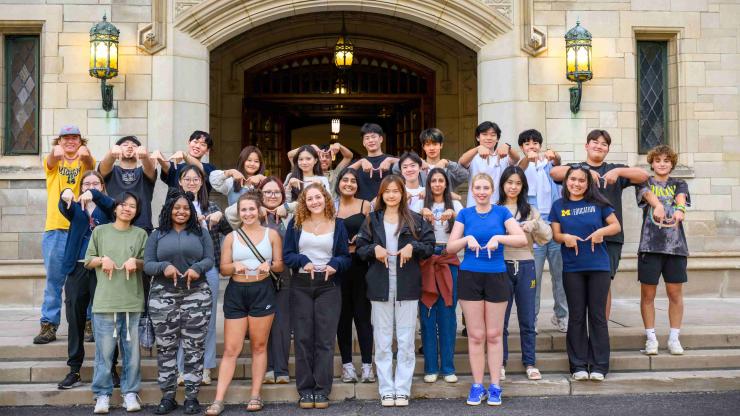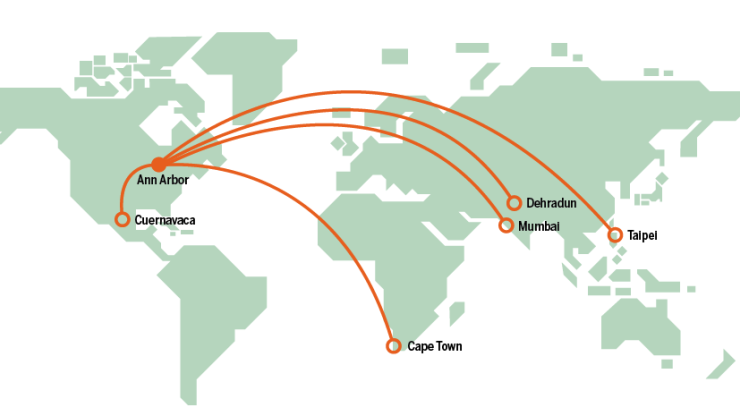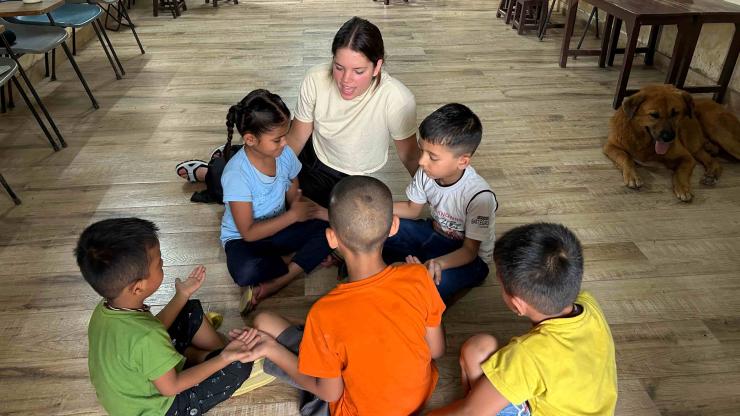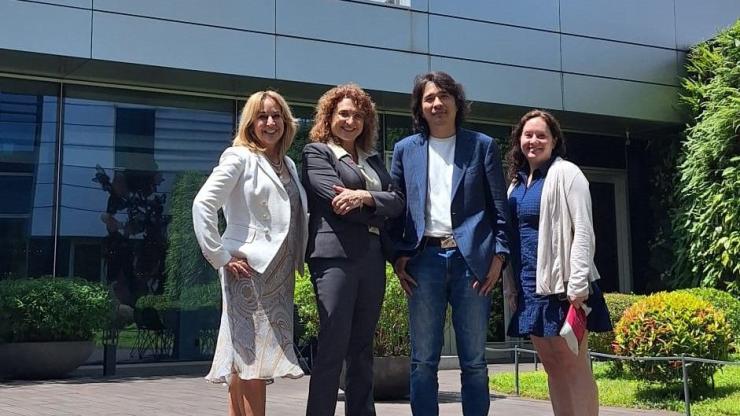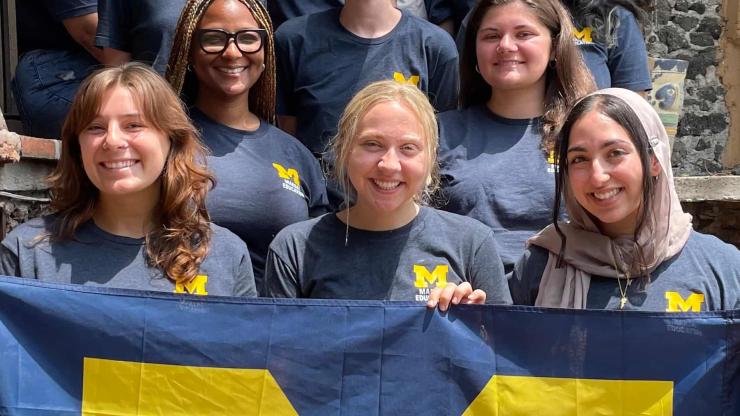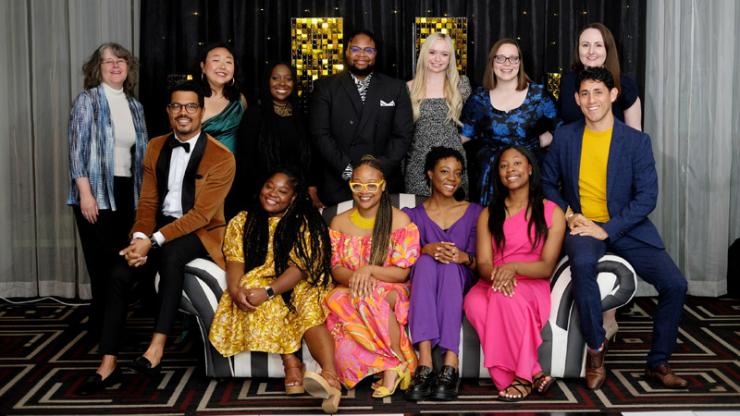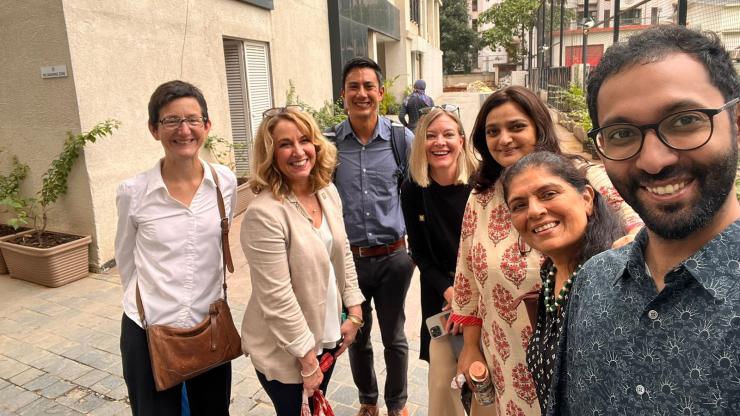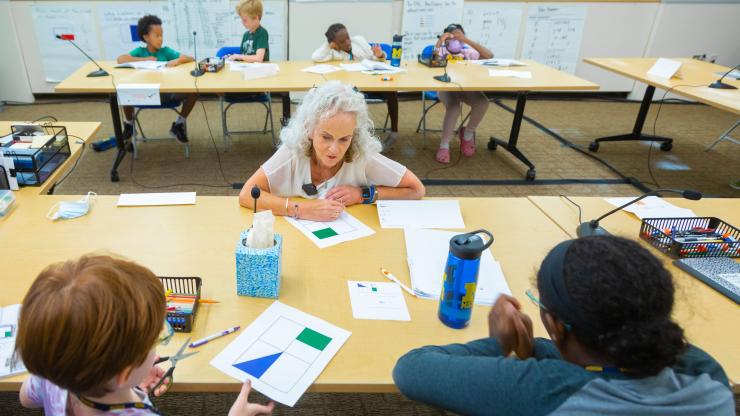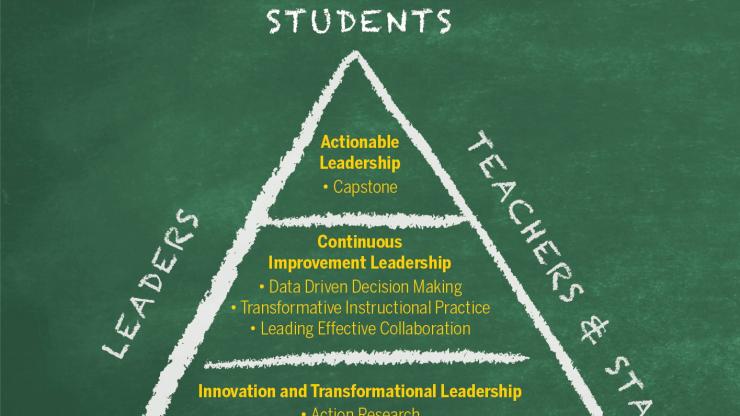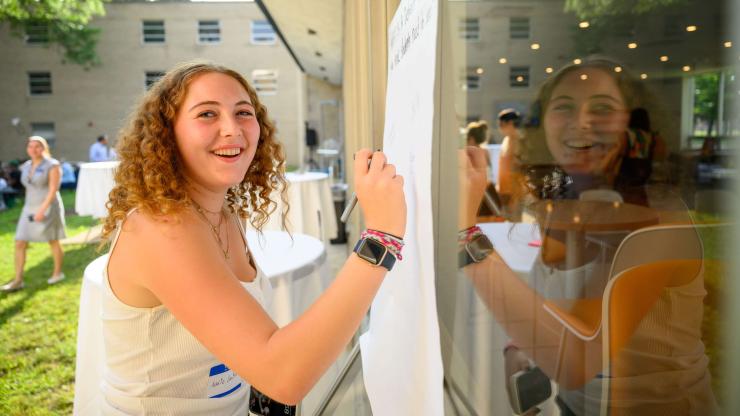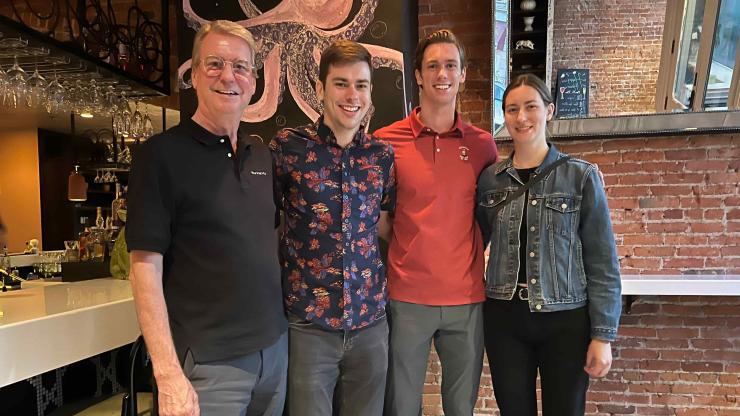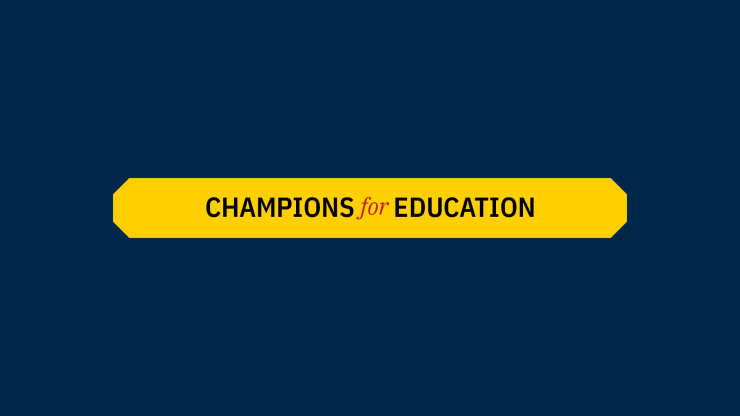
Fall 2024

Dean's Letter
Look to Michigan for solutions to the defining challenges of our time, and for new knowledge that advances human progress. This great public university that is known for interdisciplinary excellence, a spirit of discovery and intellectual rigor, and a commitment to serve the public good has presented a bold vision for what’s next. We call it Vision 2034.
Over the next several years, we will be engaging our worldwide community in supporting this vision through the Look to Michigan campaign. Four major impact areas have emerged from our planning work, with one pillar—education—being the foundation of the other three. We know that Marsal Education has a central role in this campaign because we know that education is inextricably linked to human thriving and the advancement of healthy, just societies.
In this issue of Michigan Education, we share our priorities for the Look to Michigan campaign and ask that you help us engage others in reimagining how we might look to education for the solutions we seek today and in the future. For years, we have been discussing the need to change the narrative on education, and this campaign offers a unique opportunity to raise up education and educators.
Part of the university’s Vision 2034 is to foster global engagement. In 2024, Marsal faculty, staff, and students traveled internationally for research collaborations, scholarly exchange, and skills development for education practitioners.
This year, I had the opportunity to travel with cross-campus delegations to Taiwan and India. In the spring, the university’s Pan-Asia Alumni Reunion in Taiwan presented a chance to meet with Michigan alumni who are making a difference in the field of education across Asia. In my October trip to New Delhi and Mumbai, my colleagues and I led workshops for teachers, learned about the Indian education system, and explored new partnership opportunities. Finally, we had the pleasure of meeting wonderful alumni from many parts of India at the U-M India Alumni Association event in Mumbai.
Our Center for the Study of Higher and Postsecondary Education took a study trip to South Africa. Our graduate students presented at the South African National Resource Centre academic conference, in addition to visiting South African universities, historical sites, and a game reserve. Higher education students made connections with peers and learned from many experts in their field.
Undergraduate students in our English Language Development program had a three-week experience in Cuernavaca, Mexico. Relying on home-stay hosts, students completed coursework, watched teachers employ instructional strategies in their classrooms, and visited historical sites. Through the generosity of a donor to the Marsal School, another undergraduate student spent her summer teaching in a small village in India. These students will soon be teaching in their own classrooms and will bring the perspectives and insights gained through their experiences to their students.
Another exciting development in our effort to extend the reach of Marsal Education is the announcement of our first fully online master’s degree. The first cohort in the online Master of Arts in Leading Educational Innovation and Transformation will begin their degree program in the fall 2025 semester. The curriculum covers learning theories, action research, entrepreneurial leadership, and data-driven improvement to prepare students with the knowledge and skills needed to be strong education leaders, collaborators, and problem solvers.
For the first time in our 103-year history, first-year students were admitted to the Marsal School through our new Bachelor of Arts in Education degree program called Learning, Equity, and Problem Solving for the Public Good (LEAPS). In this issue of Michigan Education, we welcome the 27 students who joined us at the end of August when they moved into their residence hall on the Marygrove Learning Community campus in Detroit—the site of a robust public-private education partnership. As these students learn at various historical and cultural sites around Detroit and take courses in both Detroit and Ann Arbor, they also help us shape the future of the LEAPS degree program. They are our first cohort, blazing a new path at this great university.
We also welcomed four new faculty members to the Marsal School this fall. Professors Michael Brown, Walter Ecton, and Demetri Morgan joined the higher education faculty, and Professor Tanya Wright joined the educational studies faculty. These new faculty members are poised to inspire and lead in their fields, enriching our programs with their expertise and dedication to student success.
This year we celebrated Dr. Deborah Loewenberg Ball’s appointment as the Jessie Jean Storey-Fry Distinguished University Professor of Education. Distinguished University Professorships are the highest honor the university bestows upon its faculty. Loewenberg Ball chose to recognize the principal who mentored her as a new teacher at Spartan Village Elementary School in East Lansing, Jessie Jean Storey-Fry. It is a particularly fitting tribute because Loewenberg Ball’s work has had such an impact on the preparation of educators.

